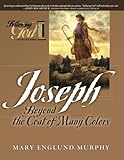How to Study the Bible: Three Methods to Help Make the Word Come Alive
One of the best ways for a Christian to grow in their spiritual life is by studying the Bible. It's not just an old dusty book. Christians believe the Bible to be the Word of God -- alive and active and sharper than any two-edged sword, as it says in the Book of Hebrews. I firmly believe that if you study the Bible diligently and prayerfully, the book will come alive to you.
I've written the following hub primarily for people who want to mature in their walk with Christ by studying God's Word. If you're not a Christian -- if you have a different religion or aren't familiar with the Bible and want to know what it's all about -- that's really the subject of another hub. But by all means feel free to keep reading if you'd like.
Selected Bible Commentaries
Before You Begin
If you want your Bible studies to be rich, you're going to have to make some preparations and quite possibly invest a little money in order to do so. Here are some of the things that you will need:
- You will need a Bible, of course. Some people insist that you should only read the King James Version. I am not one of those people! The important thing is that you have a translation that speaks to you. It should be a true translation, though, and not a paraphrase (which is essentially a translation of a translation). The New International Version, the New Living Translation, and the English Standard Version are a few that have come out in recent years.
- You'll also want a notebook, a writing implement and, if you don't mind marking in your Bible, perhaps a highlighter or two.
- A good concordance would be helpful so that you can find passages quickly based on keywords. The granddaddy here is Strong's Exhaustive Concordance. Here's a case where having a King James Version can be useful since the words are all keyed to it.
- You should also have one or more Bible commentaries that you like. I own several, but I primarily use two. For an overall chapter-by-chapter analysis I use Warren Wiersbe's excellent 2-volume commentary. To go in depth, verse by verse, I like Nelson's New Illustrated Bible Commentary.
- Most important of all, you will want a quiet place and plenty of time. You don't want your study to be interrupted.
There's one other thing you will need to do before you begin, and that is pray. When I was going to Bible studies in college, I had a friend who had written along the edge of his Bible PRAY FIRST. That's good advice. The Bible is the Word of God, but it's the Spirit of God that makes the Bible come alive. Your prayer could be something as simple as David's was in Psalm 119:18: "Open my eyes that I might see wonderful things in Your Law."
All ready to plunge in? Okay, then let's go.

Method # 1 -- Studying a Book
This is my favorite Bible study method. I take a book and study it, end to end.
The book can be short enough to absorb in one sitting, or it can be longer book. For a long book, I generally find it best to read just a few chapters a day and continue with the book over the next several days. Lately, I've been following Wiersbe on this. If he comments on a single chapter, I will read a single chapter. If he comments on three, I will read three.
If the book is really short -- Jude, say -- I will often combine that book with another one, or perhaps another two.
Short, of course, is a relative term. Paul's Letter to the Colossians is short -- only four chapters -- but there's a lot in there, so it might not make sense to read it all in one sitting. Sometimes you just have to go where your study takes you.
What book should you start with? A lot of that will be up to you. Some people recommend starting with the Gospel of John. It has only 21 chapters and there's a lot of material in there that doesn't appear in the other three Gospels, so that's a pretty good choice. If you have a Jewish background, you might want to start with the Gospel of Matthew, who demonstrates how Jesus is the fulfillment of Old Testament prophecy.
One thing I wouldn't recommend doing is reading the Bible chronologically. Some of the early books, like Genesis and Exodus, are wonderful, of course, but there are others, such as Numbers and First and Second Chronicles that can seem daunting unless your heart is fully prepared to tackle them. One nice thing about the Bible is that reading the books chronologically isn't really necessary. There are 66 of them from which to choose and you can gain insights from any of them.
Another question that comes up in a book study is how many times should you read the book? Once? Twice? Ten times? I've heard all kinds of counsel on this. Generally, I think it's safe to say that to get any benefit you'll need to read the book a minimum of one and a half times -- the first to read the text and the second to go back and look in depth at the passages that strike you.
That's where your Bible commentary may be helpful. You might come across a word or phrase you don't understand or something else where you feel you can use a bit of additional enlightenment. Perhaps it's something relating to an ancient custom you're not familiar with or a particular word or phrase. If what you're reading confuses you, it's probably confused someone else, too. Go to your commentary and see what your commentator has to say about the subject.
Your commentary can be helpful if you're just starting a book as well. At the beginning of each book there will be a section outlining the historical context: who wrote the book and when; whom the book was written for; and why it was written. Such sections are usually well worth the read.
As you go along, of course, you'll want to use your notebook to jot down any insights that you may glean. And when you are done, you can pray again, thanking God for what you have learned and asking Him to help you apply any lessons you may have learned into your life.
Method # 2 -- Studying a Word or Topic
A second type of study is the word or topical study. For this kind of study, you select a topic such as grace or angels and see what the Bible has to say about it in various contexts.
To do this study well, you will need a concordance so that you can find as many references as possible to the topic you are looking up. Better yet, use a topical Bible, which will have many of the topics clustered for you.
Some care should be taken when deciding upon a topic. You don't want to bite off more than you can chew. You could probably work your way through a topic like fasting in a few hours or a few sessions, but a wide-ranging topic like sin might take you weeks.
In doing a study like this -- or any Bible study for that matter -- it is often helpful to look up a word in the original Hebrew or Greek in order to pick up various nuances and usages. There are a number of tools available for this, such as Vine's Dictionary of Old and New Testament Words. My favorite tool of late, though, has been the Word Study Bible by AMG Publishers. It comes in two volumes -- one for the Old Testament and one for the New -- and is basically an interlinear Bible. All you have to do is read the passage in English and above most of the words you will find a number, which will refer you to a dictionary in the back. There you can see what the original word was and all the meanings of it. Not only is this a useful tool, but you don't even need to know Hebrew or Greek to be able to use it. The editors have also provided generous footnotes throughout the text for some of the more difficult passages.
Method # 3 -- Studying a Character
A third approach to Bible study is focusing on a character to see what kind of person he was and what his walk with God was like. It's a way of learning by example.
For some Bible characters, it's quite easy to find all the passages that relate to him or her. A good example would be Naomi. She appears only in the Book of Ruth but there is a lot we can learn about her. Other people, however, have influence that is more widespread. Noah appears in Genesis, but he's referred to several times in the New Testament as well, such as in the Book of Hebrews. To study Peter or Paul this way would be quite ambitious. Not only would you have to read the Gospels and/or the Book of Acts; you'd also want to read their epistles.
(Also, one cautionary note: Don't select Jesus as your character -- not for this type of study! There is much, too much about Him in both the New Testament and the Old for you to complete the task! Instead, try to narrow your focus a bit. How did Jesus deal with women, for example? Or social outcasts? Or the Pharisees? How did he pray? What was Jewish about Him? That type of thing.)
On the other hand, you don't want to pick a character who is too obscure either. Ehud was a heroic man of faith, but the Bible doesn't have much to say about him. Your study in that case would be very, very short.
There are, however, a few Bible people who play relatively minor roles in the overall scheme of things but who make great character studies nonetheless. The Book of Judges is full of these -- people like Gideon or Samson or Deborah and others who are even less well-known. I once did a study of Abimelech whom I had never heard of before. I stumbled on him quite by accident, but he turned out to be a wonderful study in misplaced zeal and I enjoyed learning about him.
There are lots of people who make wonderful character studies. If you're not sure where to start, you might try the Following God series. They offer several workbooks containing individual character studies (usually four or five per character) centered around a theme -- the Prophets, the Old Testament Kings, women, etc.
These are the Bible study methods that have worked best for me. I hope they do the same for you. God bless you in your studies.










